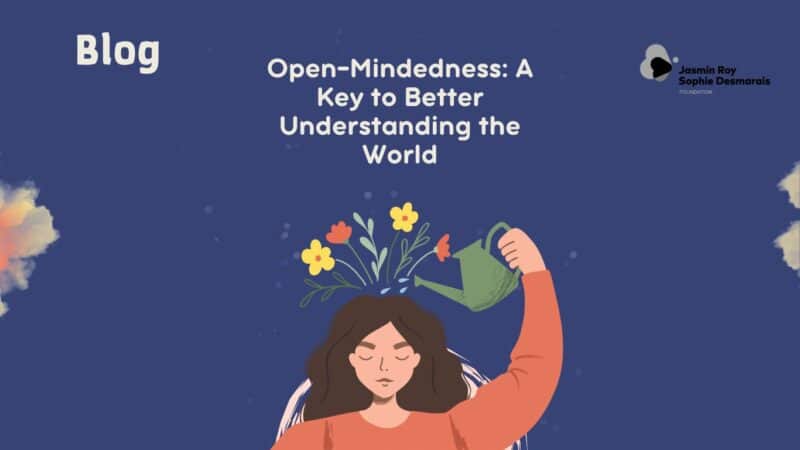Open-mindedness is often associated with tolerance and the ability to accept new ideas. However, it’s not simply about saying “yes” to everything around us; rather, it’s about adopting a thoughtful approach that allows us to explore different perspectives while maintaining a critical view. This ability is essential in navigating a complex world where opinions and experiences vary greatly.
What is Open-Mindedness?
From a psychological standpoint, open-mindedness is the willingness to consider new ideas, reassess one’s beliefs, and tolerate ambiguity. According to Carol Dweck, a psychologist known for her work on the “growth mindset,” open-mindedness is based on the belief that our skills and knowledge are never fixed. This means we are always capable of growing, learning, and shifting our perspectives. However, this capacity requires more than a mere willingness to listen—it involves an active and thoughtful examination of the information we encounter.
Contrary to popular belief, open-mindedness doesn’t mean accepting everything blindly. As the writer and philosopher G.K. Chesterton said, “The purpose of an open mind, like an open mouth, is to close on something solid.” In other words, it’s about being open to new ideas while maintaining critical thinking.
Why is Open-Mindedness Important?
Our brains are designed to process information quickly and efficiently, often relying on patterns and cognitive shortcuts. This can lead us to jump to conclusions or reject viewpoints that don’t align with our preconceived beliefs. By remaining closed-minded, we risk limiting ourselves to a single perspective, reinforcing biases, and blocking genuine dialogue.
Open-mindedness, on the other hand, promotes empathy, understanding, and personal growth. It allows us to question preconceived notions and explore areas we might not have considered before. As Adam Grant, organizational psychologist and author of *Think Again*, emphasizes, it’s essential to revise our beliefs and opinions when presented with more convincing evidence. This mental flexibility is at the core of human wisdom.
How to Cultivate Open-Mindedness?
Adopt a Curious Mindset
Instead of seeking to be right, adopt the mindset of an explorer. Curiosity drives us to ask questions, delve into unfamiliar topics, and stay open to diverse perspectives. Ask yourself, “What can I learn from this person or situation?” rather than trying to defend your viewpoint at all costs.
Practice Active Listening
Open-mindedness begins with listening. Taking the time to truly understand what someone else is expressing, without immediate judgment, is essential. This practice helps us move beyond ego barriers or preconceived opinions to reach a more nuanced understanding.
Embrace Uncertainty
Uncertainty is a natural part of life. Learning to be comfortable with it means accepting that we don’t always have all the answers—and that this doesn’t lessen our worth. By cultivating this tolerance for ambiguity, we give ourselves the freedom to consider new ideas without the immediate need to label them as “right” or “wrong.”
Surround Yourself with Diversity
Diversity in viewpoints—whether cultural, intellectual, or emotional—enriches our understanding of the world. Engaging with people who hold different perspectives is a powerful way to develop open-mindedness. This is a daily practice that not only enhances our own lives but also positively impacts those around us. It doesn’t require abandoning core values, but rather being willing to reassess them in light of new information. By nurturing this mindset, we allow ourselves to grow, learn, and build deeper connections with the world around us.





